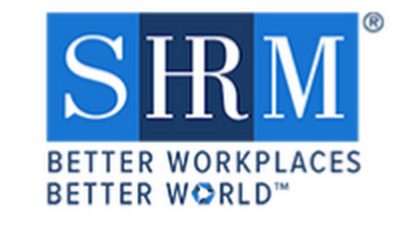FUTURE OF CNMI WORKFORCE
‘Without people, US companies won’t be successful’

Society for Human Resource Management president and chief executive officer Johnny Taylor Jr. understands the need for workers. (Bea Cabrera)
Editor’s Note: The following is part of a series that examines what is being done today to prepare for the end of the foreign worker program in 2029.
Third part of a series
Many companies are struggling to fill job vacancies—an experience that is not only prevalent in the CNMI but worldwide, according to Johnny C. Taylor Jr., president and chief executive officer of the Society for Human Resource Management, who visited Saipan and spoke at the group’s recent monthly meeting.
Growing up in Fort Lauderdale, Florida—an island detached from the U.S. mainland and where tourism is the economic driver similar to the CNMI—Taylor understands the need for foreign workers under the CNMI-Only Transitional Worker program.
“The CW issue that you are experiencing in the CNMI is a really a complicated issue because, on one hand, what we want to do under the President’s initiative is to ensure that Americans who need jobs can get jobs. The problem is, many of the jobs that the CW-1 workers perform, Americans don’t want to [do them], so there is a dilemma,” he said.
He said that SHRM supported a recent law that extended the CW program by 10 more years.
“Our position is we need to make sure that all Americans have the opportunity to work, but if those jobs can’t be filled, we must rely on talent elsewhere, no matter where it is on the globe…,” he said. “Ultimately, American companies will not be successful if they don’t have people.”
Taylor believes that the manpower shortage—which is occurring all over the United States and its territories—are caused by many factors, one of which is a drop in America birth rates.
“Americans are having fewer children, therefore you have fewer potential workers 20 years from now. There’s a mismatch…so whatever the problem is in 2018, years from now it’s going to be exacerbated because we are having fewer children, which means we’ve got to sort out responsible immigration, which the U.S. Workforce Act might do. You need to supplement your domestic workforce and we are supportive of doing that, as long as it doesn’t mean that Americans who want to work don’t have jobs.”
“When you think about the eras, we had the agricultural era and the industrial revolution era. We were automating and using fewer people… But now that we’ve gotten into this augmented space, this new era where it’s knowledge-based, people are becoming more important,” he added.
Investing in the future of the workforce—today’s children—may be the way to help with the ongoing obstacle of lack of manpower, Taylor said.
“In the U.S., companies are recruiting kids right now in middle school and high school to feed their needs in the future. No one is doing that in agriculture or construction industry.
“What we are trying to do is partner with employers who are in those industries that are high-need and future growth areas to introduce their careers to students earlier in K2-12 education.
“We call it ‘employment and education’…making sure that students know about all the opportunities available and so we are trying to figure out how to get employers and educators to talk. The rationale behind this is every kid is not going to go to college, every kid is not going to go to law school or medical school, but they need to know the career opportunities for them. There are great paying jobs out there that some people don’t even think about because they are not the traditional professions,” he added.
This is where SHRM could play an important role. Taylor wants SHRM to be dynamic in the human resources field.
“Too often, HR gets involved in the back end and we are the people that execute the details once decisions have been made and policies laid out. That is a mistake…SHRM will be involved in whatever phase because there is an opportunity for us to be at the table,” he said.
“Our biggest issue is our birthrate problem, which…is a major call for a responsible and smart immigration reform, which SHRM is supportive of. We fundamentally believe that not allowing foreign workers or limiting the workforce to just a pool of Americans means we are going to limit our ability to grow,” he added.


























